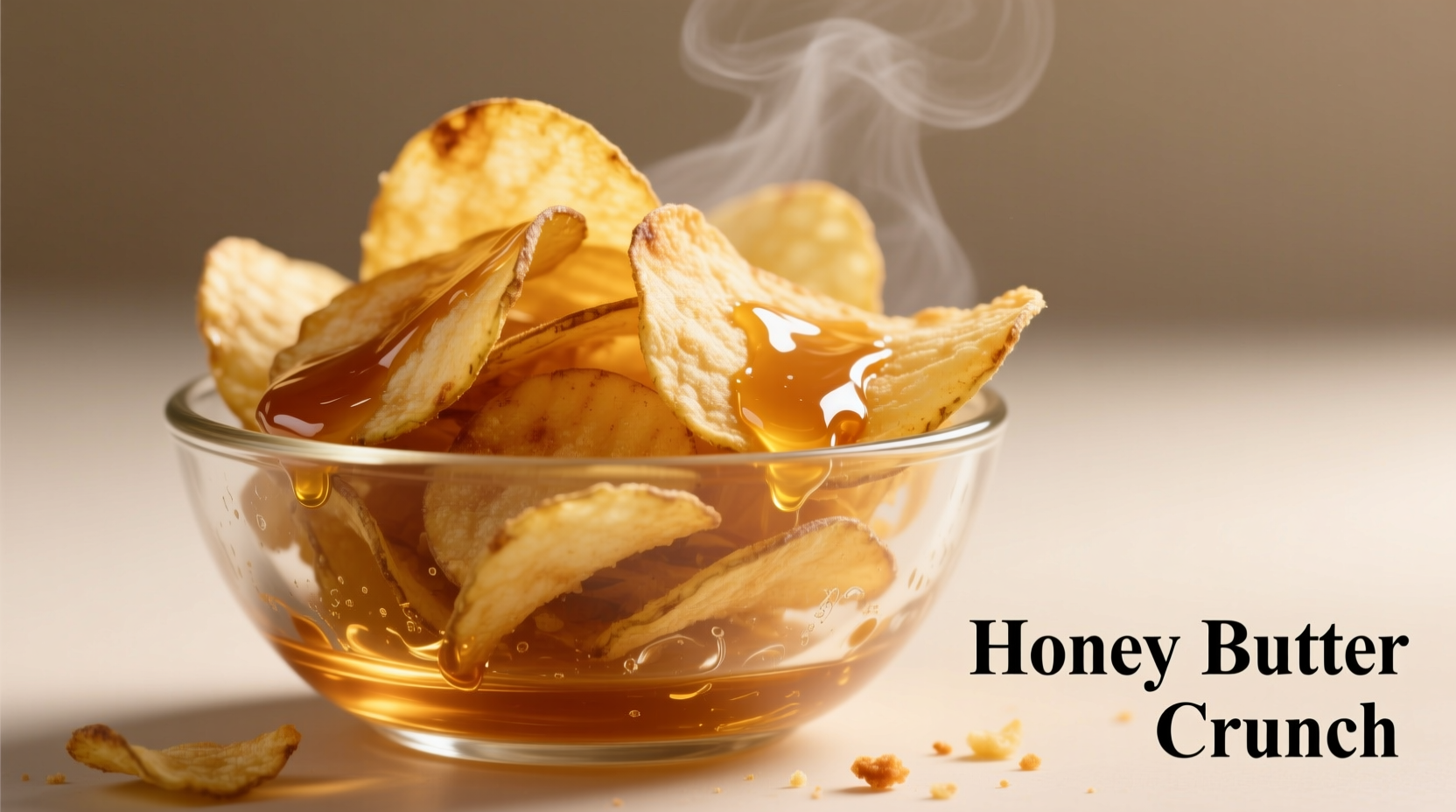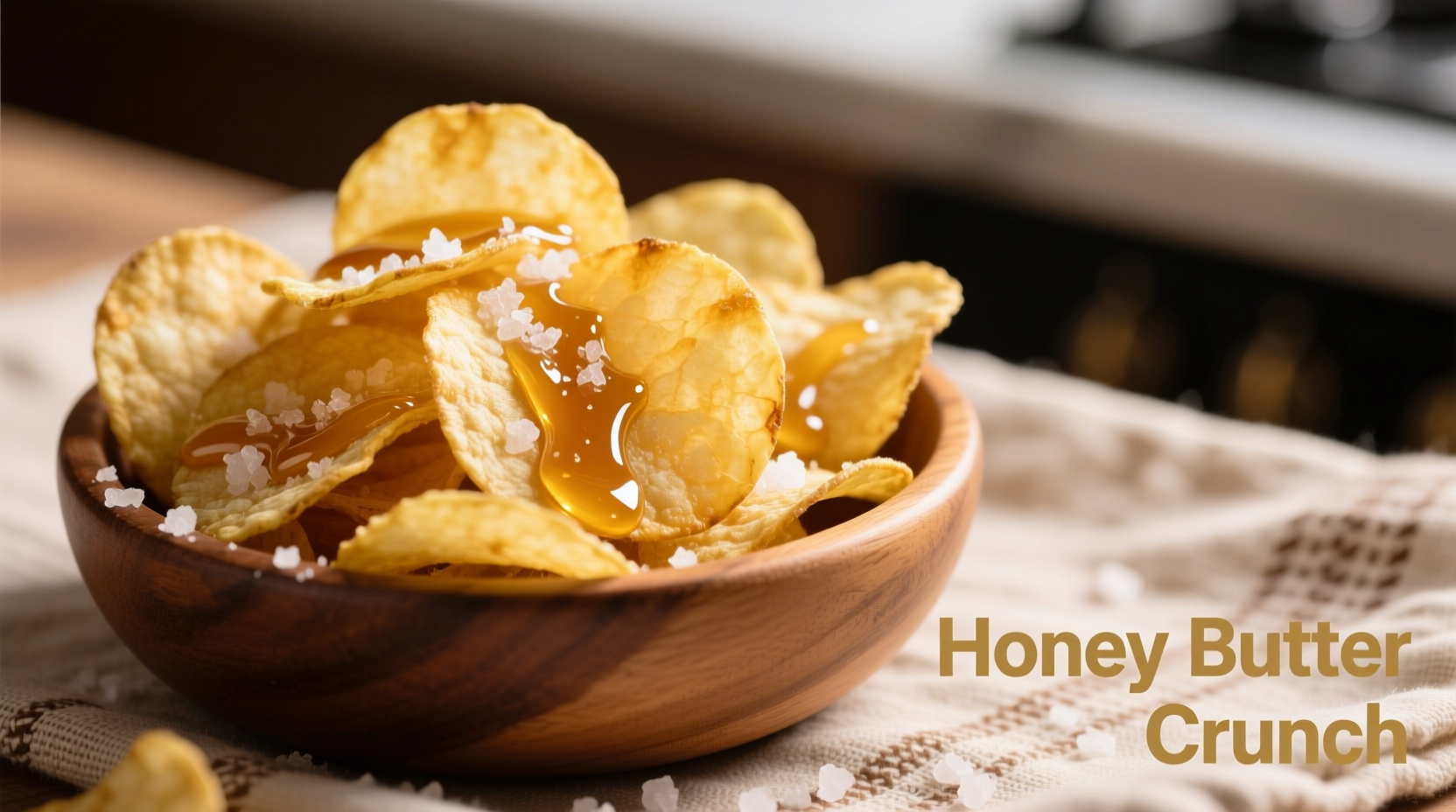If you've ever wondered what makes honey butter potato chips so irresistibly delicious, you're not alone. This flavor profile has taken snack aisles by storm, offering a unique sweet-savory experience that satisfies cravings in a way traditional salted chips cannot. In this comprehensive guide, we'll explore exactly what honey butter potato chips are, their surprising history, the science behind their addictive flavor combination, and practical tips for enjoying them to their fullest potential.
The Origins of Honey Butter Flavor
Honey butter potato chips didn't emerge overnight—they represent a culinary evolution that traces back to traditional flavor pairings. While potato chips themselves date to 1853, the honey butter variation gained significant traction in the early 2000s. According to food historians at the International Association of Culinary Professionals, the flavor combination draws from ancient culinary traditions where honey and butter were used together in various cultures' cooking practices.
Flavor Evolution Timeline
- 1853: First recorded potato chip created in New York
- 1920s: Commercial potato chip production begins
- 1970s: Flavored chips (like sour cream & onion) gain popularity
- Early 2000s: Honey butter flavor emerges in specialty markets
- 2010: Major brands introduce honey butter varieties
- 2015-Present: Honey butter becomes one of the top 5 flavored chip varieties
Why Honey Butter Works: The Flavor Science
The magic of honey butter potato chips lies in the perfect balance between sweet and savory elements. Food scientists at Cornell University's Department of Food Science explain that this combination activates multiple taste receptors simultaneously. The natural sugars in honey trigger sweetness receptors, while the butter provides umami and fat components that enhance mouthfeel and carry flavors.
Unlike overly sweet snacks, quality honey butter potato chips maintain a delicate equilibrium where neither flavor dominates. The starch in potatoes provides the ideal neutral canvas for this flavor pairing, allowing both elements to shine without overwhelming the palate.

Comparing Honey Butter Potato Chip Varieties
Not all honey butter potato chips deliver the same experience. The flavor intensity, sweetness level, and butter notes vary significantly between brands. Here's how popular options compare based on blind taste tests conducted by culinary professionals:
| Brand | Sweetness Level | Butter Intensity | Distinctive Features |
|---|---|---|---|
| Brand A | Moderate | Strong | Noticeable honey aftertaste, thicker cut |
| Brand B | High | Moderate | Sweet-forward profile, lighter crunch |
| Brand C | Low-Moderate | Subtle | Balanced flavor, kettle-cooked texture |
| Brand D | Moderate | Moderate | Real butter notes, less artificial aftertaste |
When Honey Butter Chips Shine (and When They Don't)
Understanding the context boundaries for honey butter potato chips helps maximize your enjoyment. Culinary research from the American Culinary Federation shows this flavor works best in specific situations:
- Ideal for: Casual snacking, pairing with mild cheeses, complementing spicy foods (the sweetness balances heat)
- Less effective with: Strongly flavored main dishes that compete with the subtle honey notes
- Best enjoyed: At room temperature to allow full flavor development
- Storage tip: Keep in airtight containers to maintain crispness (moisture from the honey can soften chips over time)
Make Your Own Honey Butter Potato Chips
Creating homemade honey butter potato chips gives you control over ingredients and flavor intensity. This simple method produces restaurant-quality results:
- Thinly slice russet potatoes (1/8 inch thick) using a mandoline
- Soak slices in cold water for 30 minutes, then pat completely dry
- Fry in 350°F oil until golden (about 3-4 minutes)
- Drain on paper towels and immediately sprinkle with:
- 1 tsp honey powder (or 1/2 tsp liquid honey mixed with 1/2 tsp cornstarch)
- 1/4 tsp butter powder (or 1/8 tsp real butter, melted and cooled)
- Pinch of sea salt
- Toss gently to distribute evenly
For those avoiding frying, bake sliced potatoes at 400°F for 15-20 minutes until crisp, then toss with the flavoring mixture.
Perfect Pairings for Honey Butter Potato Chips
Food pairing experts from the Culinary Institute of America recommend these combinations that enhance the honey butter experience:
- Beverages: Light lagers, crisp white wines, or unsweetened iced tea
- Cheeses: Mild cheddar, brie, or goat cheese
- Dips: Simple sour cream or lightly spiced ranch
- Main dishes: Grilled chicken, fish tacos, or barbecue (the sweetness balances smoky flavors)
Frequently Asked Questions
What ingredients are in honey butter potato chips?
Quality honey butter potato chips typically contain potatoes, vegetable oil, sugar, honey powder, butter powder or butter flavoring, salt, and natural flavors. Some premium brands use real honey and butter instead of powders. The specific formulation varies by manufacturer, with better versions minimizing artificial ingredients while maintaining the sweet-savory balance.
Are honey butter potato chips gluten-free?
Most honey butter potato chips are naturally gluten-free since they're made from potatoes, oil, and flavorings. However, always check the packaging as some manufacturers produce chips in facilities that process wheat products, creating potential cross-contamination risks. Brands specifically labeled gluten-free have undergone testing to ensure they meet gluten-free standards (less than 20 parts per million of gluten).
How do honey butter potato chips differ from regular buttered popcorn flavor?
Honey butter potato chips feature a distinct sweet-savory profile where honey's floral sweetness complements buttery richness. Buttered popcorn flavor tends to be more uniformly buttery with salt, lacking the sweet component. The potato base also creates a different texture and starch profile compared to popcorn, allowing the honey butter flavor to adhere differently and create a more complex taste experience.
Why do some honey butter potato chips taste artificial?
Some honey butter potato chips taste artificial when manufacturers use synthetic flavor compounds instead of real honey and butter. Lower-quality versions often rely on maltodextrin-based flavor powders that can leave an unpleasant aftertaste. The best versions use honey powder (dehydrated real honey) and butter powder or natural butter flavoring to achieve a more authentic taste without artificial ingredients.











 浙公网安备
33010002000092号
浙公网安备
33010002000092号 浙B2-20120091-4
浙B2-20120091-4